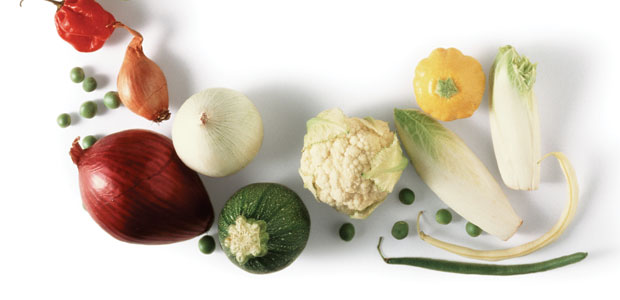Advertisement
The Healthy Vegan
I meet Karen at our favorite coffee shop. On the counter I find a large metal jug of soy milk. Jackpot! I pour a decadent amount into my organic decaffeinated coffee. I don’t drink milk or consume any dairy. Neither do I eat meat; I am a vegan. Vegans Cut Out Cholesterol Many people think … Continued

I meet Karen at our favorite coffee shop. On the counter I find a large metal jug of soy milk. Jackpot! I pour a decadent amount into my organic decaffeinated coffee. I don’t drink milk or consume any dairy. Neither do I eat meat; I am a vegan.
Vegans Cut Out Cholesterol
Many people think a vegan diet isn’t capable of meeting all nutritional needs, especially protein, but this isn’t true. In June 2003 the Dietitians of Canada agreed, “Well-planned vegan and other types of vegetarian diets are appropriate for all stages of the life cycle, including during pregnancy, lactation, infancy, childhood, and adolescence.” The key words here are “well planned.” We must do more than take the hot dog out of the bun; we must find a complete protein to fill it with.
Together with fats, protein stops carbohydrates from causing an insulin roller coaster. My soy milk coffee topper has both. Plus, it is far from being a second-rate substitute for dairy fats and protein. Unlike other beans, the soybean carries the entire chain of essential amino acids, otherwise known as a complete protein. Karen accepts this, but she looks surprised when I tell her that my serving of soy milk has 10.98 grams of protein per cup. She remembers that her two-percent milk has about nine grams of protein and five grams of fat. “Soy milk has almost the same amount of fat,” I say, “but it’s low in saturated fat and has no cholesterol. If you don’t want cholesterol you’ll have to choose soy. Even skim milk has cholesterol.”
No Need to Miss Nutrients
“Are soy products the only way you can get complete protein?” asks Karen. I shake my head. “Hemp products also contain complete protein. I have a tablespoon of hemp oil every day.” And I know which foods to combine to get complete protein: tempeh burgers on a whole wheat bun, corn tacos with pinto beans, brown rice with almonds and cashews–the list goes on.
“Sure, but dairy is the absolute best source of calcium, right?” asks Karen. I explain that equivalent amounts of calcium can be found in soy versions of both milk and cheese. “But I don’t want to limit myself to soy,” protests Karen. She doesn’t have to. There are an enormous variety of foods available that help provide the 1,000mg to 1,200 mg of calcium necessary to meet the daily Recommended Nutrient Intake. I tell her that these foods include egg substitute, almonds, hazelnuts, figs, spinach, dried apricots, and sunflower seeds.
“Okay,” she concedes. “A vegan diet can provide adequate protein and calcium, but isn’t it better to get your iron from meat?” I think for a minute. The iron from meat is more bioavailable than from vegetables. On the surface, one cup of trail mix has more iron than a serving of beef. Yet to get this amount, I need to eat it with a source of vitamin C, which increases absorption. This food combining isn’t always necessary though. Many iron-rich foods, such as broccoli and bok choy, are high in both iron and vitamin C. “I never eat these with soy or any other high-calcium source,” I tell Karen, “since calcium decreases iron absorption.”
“Yes, but even with all your attention to detail, how can you be healthy without B12, which isn’t found in plant foods?” Karen has a point. Though the bacteria in the small intestine produce small quantities of B12, I can’t rely on this to prevent deficiency. Getting B12 is challenging. Thankfully, I can get small amounts from certain nutritional yeasts, fortified cereals, soy milk, and “mock” meat made from soy-based products. For extra security I take a sublingual supplement providing 10 mcg of B12 daily.
Mainstream Vegans
“Sounds complicated, like you’re following the rules of a secret society! Do you have to be sworn in?” laughs Karen. She may be joking, but some people truly believe veganism is a cult. However, veganism is a reasonable and logical alternative to an omnivorous diet, and it’s becoming more mainstream than ever. Alicia Silverstone and Shakira are vegans, and so are Carl Lewis and Canadian Ironman triathlete Brendan Brazier.
“Anyone can go vegan,” I tell Karen. “There are more foods, books, and resources than ever.”
For more information, visit vegan.org, veg.ca, or view the Vegetarian Food Guide from Dietitians of Canada at dietitians.ca/news/highlights_positions.html.




